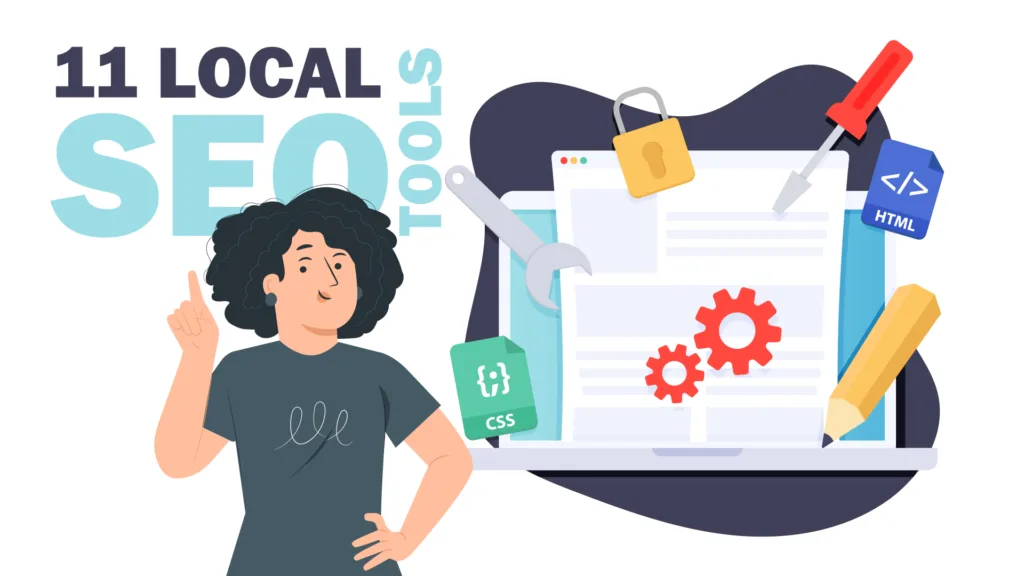Small businesses delineate a major challenge: “How can I get more people through the door?” It’s becoming more natural to answer that question with Local SEO. But, let’s be realistic—it really does sound like yet another buzzword. However, it’s so much more, for it is a tool that can make a very huge difference. So what exactly is Local SEO, and why should you care?
What is Local SEO?
Well, local SEO is the process of optimizing your online presence to attract more business from relevant local searches. These are the searches done on Google and other search engines. It literally consists of making sure users in your area see your business when they’re looking for the services or products you offer.
Why Local SEO Matters?
For small businesses, local SEO is very important. It levels the field and gives you a chance to go head-to-head against bigger brands. When done well, this can make your business pop up on search results, drive more footfalls, and finally, put sales on the board.
Here’s why local SEO is a must-have for small businesses:
Visibility: Most prospective customers use search engines to find a local business. If your business is not turning up in these searches, then you are losing potential customers.
Targeted Traffic: Local SEO strategies will help you become more visible to people searching for businesses like yours in your area. This means that traffic coming to your website has a greater chance of conversion into customers.
Establishes Trust and Credibility: Local search results, especially the local pack, helps establish trust with potential customers. It gives the impression that you’re running a legitimate business and a trustworthy one within their community.
Cost-Effective Marketing: Local SEO is absolutely free as compared to traditional advertising. Plus, it gives better value for money.
Steps to Optimize Your Local SEO
Now that you understand how important local SEO really is for small businesses, let’s get into some actionable steps for improving your local search optimization.
Claim and Optimize Your Google My Business Listing
Your Google My Business listing will be very important. Often, it’s the first thing people see when searching for a business like yours.
Ensure that you have a complete, accurate GMB profile. Business name, address, phone number, website, business hours, etc.
Add high-quality photos to show what your business looks like and update regularly with photo posts highlighting new products, services, or special offers.
Get Reviews and Respond to Them
Customer reviews play a huge role in local SEO. Ask your customers to give good reviews if they are very much satisfied.
Respond to all reviews, whether positive or negative. This will show your customers that you value their feedback and are willing to do an excellent job of service delivery.
Optimize for Local Keywords
Use local keywords in your website content. This involves meta titles and descriptions, headers, etc. For example, include “small business SEO,” “local search optimization,” and “local marketing techniques” on your website so that search engines are aware that it is relevant for those who are searching locally.
Make Your Website Mobile-Friendly
More and more people are using their handsets to find local businesses. So, a mobile-friendly website is no longer just a good idea; it is part of your survival.
Be sure your website is responsive, meaning it changes size to fit any screen, and that is loads quickly.
Use Local Directories
List your business in local online directories like Yelp, TripAdvisor, and local Chamber of Commerce websites.
Be sure that your business info is the same on all these directories. If not, you will confuse the search engines and hurt your rankings.
Create Local Content
Write about local events, news, or topics relevant to your community in your blog posts. It is good for SEO; but, more importantly from a branding and authority-building standpoint.
Use your Long tail keywords naturally when writing content.
Common Pitfalls to Avoid
Even with the best intentions, it is pretty easy to mess up on local SEO. There are a few common traps to beware of:
Sweeping Negative Reviews under the Rug: While ignoring bad reviews might be attractive, visibly demonstrating that you actually listen proves you definitely care about customer experiences and warranty to make things right.
Wrong NAP Info: NAP stands for Name, Address and Phone number. These should be correct and consistent over the Web.
Not being mobile-friendly: More than half of the search volume in Local Search comes from mobiles. If your site is not responsive, you lose customers.
Not capitalizing with Social Media: Social media may prove to be a great factor when boosting your Local SEO. Engage with your audience on Facebook, Instagram, and Twitter.
Conclusion
More than a trend, local SEO is something small businesses must have in order to scale and dominate markets locally. Implementing a few of the local SEO strategies below that are relevant to your Google My Business listing, review gathering and responding, use of local keywords, mobile-friendliness of your website, and building on local directories can be very instrumental in stepping up your online presence and drawing along with you more customers.
Keep in mind that search engine optimization is area-centric and continuous. Keep updating your information, maintaining an active status, and engaging with the community at local levels. Your efforts turn out in the form of increased traffic, trust, and further sales. So, take charge of local SEO for your small business today and watch it flourish.





